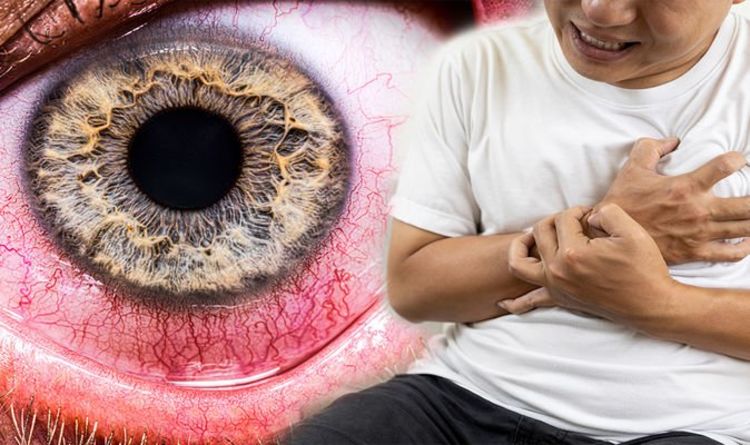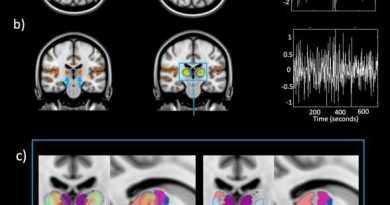High cholesterol: Three signs to spot in your eyes warning of dangerously high levels
Dr Chris reveals how eyes can indicate high cholesterol levels
We use your sign-up to provide content in ways you’ve consented to and to improve our understanding of you. This may include adverts from us and 3rd parties based on our understanding. You can unsubscribe at any time. More info
High cholesterol is when people have too much of a fatty substance called cholesterol. There are two main types of cholesterol: high-density lipoprotein (HDL) and low-density lipoprotein (LDL). People often refer to these types of cholesterol as good and bad respectively. There are three signs to spot warning you may have too much cholesterol found in your eyes.
High levels of cholesterol may affect a person’s eyes and may lead to blockages in your retina.
High cholesterol left untreated may be a risk factor for the development of one type of glaucoma.
Your retina may be the only area of your body where one can observe clots in the veins and arteries due to high cholesterol.
READ MORE: Les Dennis health: Star, 68, had ‘a lot of warnings’ of declining health

According to Care Opitcs, the high presence of bad cholesterol in your blood can cause problems when it starts to gather in your eyes.
The health site added: “It is hard to diagnose underlying problems, but some of the warning signs are:
White, grey and yellow deposits forming around the cornea
Blurry Vision
Yellow bumps around the eyes.
“These symptoms usually lead to three very serious conditions including AMD, retinal vein occlusion and corneal arcus.”
Why does high cholesterol occur?
- Genetic makeup, which is inherited from your parents
- Diet, which can lead to elevated cholesterol levels as a result of eating high-sugar foods or beverages, high-fat foods, or processed foods
- Medical conditions, such as diabetes or a thyroid disorder
- Insufficient activity or exercise
- Use of certain medications, drugs, tobacco products, or alcohol
- Metabolic changes, including the slowing of metabolism due to age
- Weight, with obesity being a major risk factor for high cholesterol.

Heart UK says: “Your GP might suggest having a test if they think your cholesterol level could be high.”
It adds that you should aim to do at least 150 minutes of exercise a week, and smoking can raise your cholesterol and make you more likely to have serious problems like heart attacks, strokes and cancer.
To stave off the risks posed by high cholesterol, it is vital that you intervene early in its development.
The American Heart Association advised that in general, red meats (such as beef, pork and lamb) have more saturated fat than skinless chicken, fish and plant protein, and can raise your blood cholesterol and increase your risk of heart disease.
Eating plenty of fibre helps lower your risk of heart disease, and some high-fibre foods can help lower your cholesterol.
Statins are widely prescribed for their efficacy in managing unruly cholesterol levels. The British Heart Foundation (BHF) says: “If your cholesterol is very high and if lifestyle changes are not enough, your doctor might suggest controlling it with medication.”
Statins are taken by more than six million Britons to lessen their odds of having a stroke and heart attack.
The NHS says that there are five types of statins available on prescription in the UK. They include atorvastatin, fluvastatin, pravastatin, rosuvastatin and simvastatin.
Source: Read Full Article



